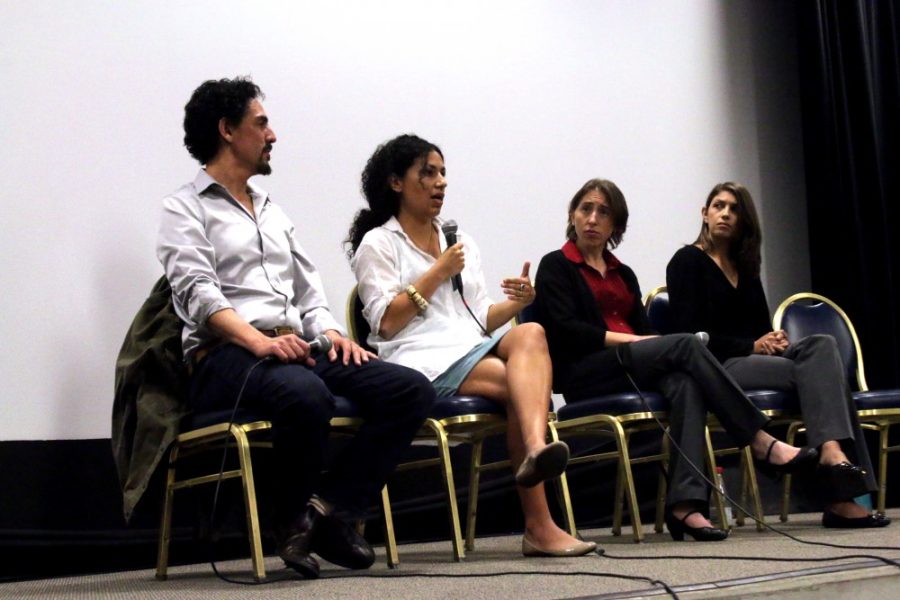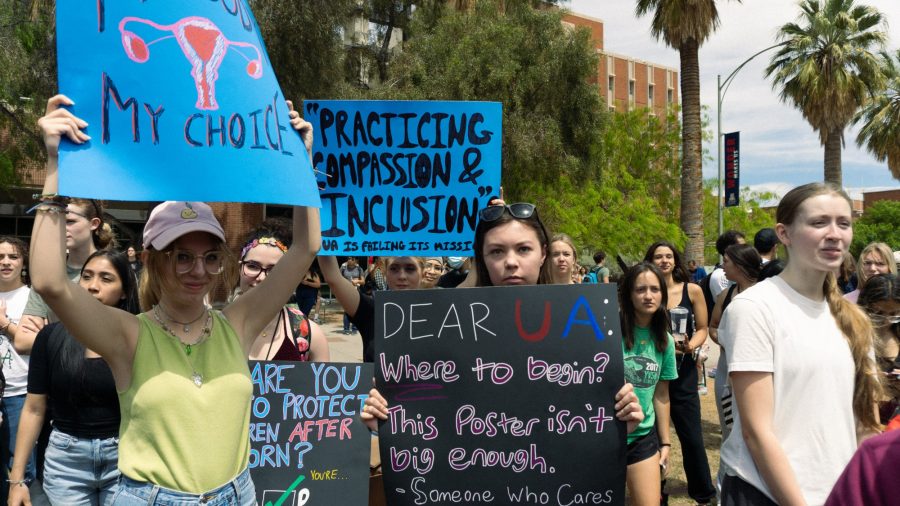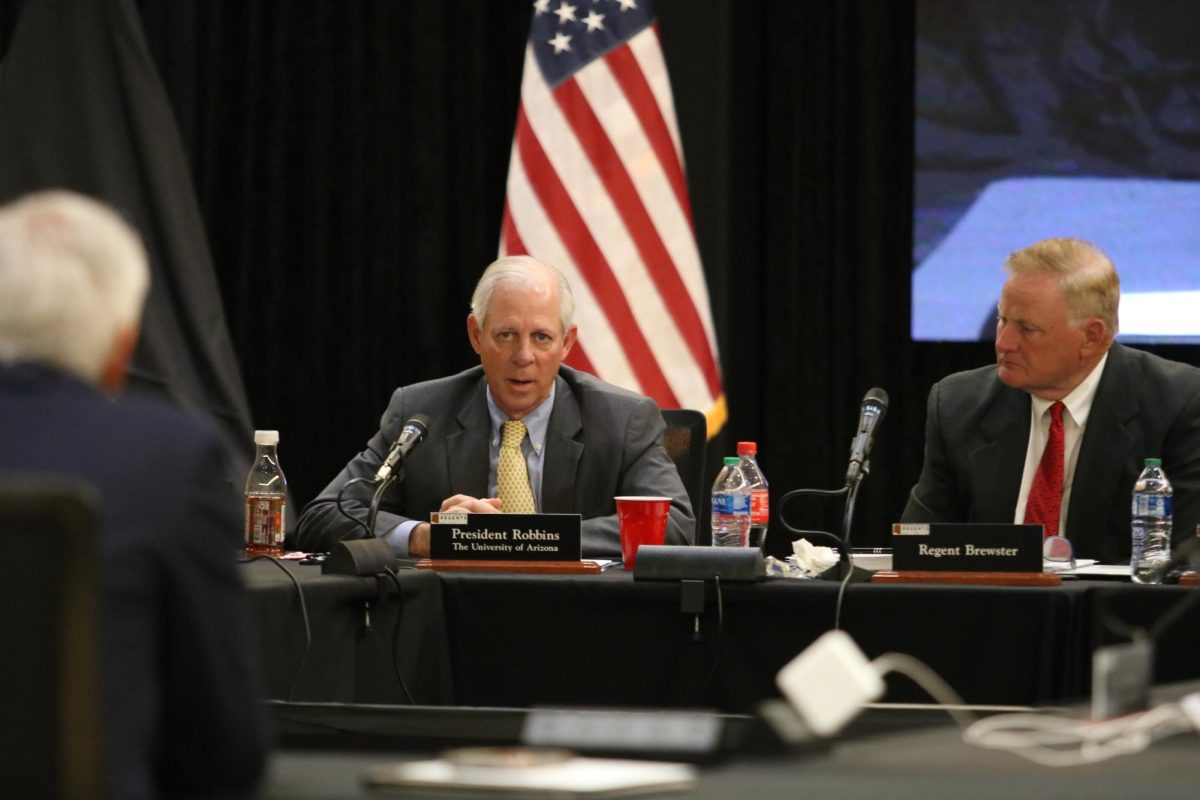UA students learned about sexual assault on custodial workers Wednesday night at a free screening and discussion of “Rape on the Night Shift,” a PBS Frontline documentary that brings light to the systemic sexual violence that plagues female janitorial night shift workers.
The event was put on by UA’s School of Journalism, in collaboration with the Department of Mexican and American Studies and the Bacon Immigration Law and Policy Program.
The documentary’s producers, UA graduate Daffodil Altan and Andrés Cediel, were joined by UA clinical professor of law, Nina Rabin, and Equal Employment Opportunity Commission Attorney, Gina Carrillo, to discuss the production of the film and the issues workers are facing.
Many times the problem in these industries is that the workers are immigrants, many undocumented, who are desperate for any work they can get. Because of the isolated nature of their work, these women end up at the hands of their powerful supervisors.
The fear of being fired or reported to immigration, as well as the shame that family dynamics burden women with, are just a couple reasons victims remain silent and endure sexual abuse, according to the Atlan and Cediel.
Carrillo said many women don’t know about her federal agency and explained the the EEOC will file claims and bring litigations for free for workers, both documented and undocumented.
“Our job is to represent people’s jobs in the workplace and these people have rights regardless of their immigration status,” Carillo said. “It doesn’t matter and … In some cases we’ll try to obtain sponsorship for visas for people have been victims of this in order for them to stay in the United States legally because they are part of an ongoing investigation.”
Rabin, who is also a director of the Immigration Law Clinic at the James E. Rogers College of Law and the UA Bacon Immigration Law and Policy Program, said sexual harassment is a familiar issue at her clinic but, often isn’t something that women come to complain about.
“They don’t think of it as illegal or something,” Rabin said, “It’s [sexual harassment], something that comes with the job and they usually come [to the clinic] because they haven’t been paid or they were fired in a way that they were angry about, and it’s only in the course of interviewing them that we learn about sexual harassment going on and that’s the far and sometimes strong and more concerning claim.”
One problem with trying to bring legal action against subcontracting companies in Tucson is that the companies are usually small, sometimes under-the-table, operations that don’t have resources to handle these charges. Because of this, the companies will sometimes disappear, according to Rabin.
Additionally, some prosecutors choose not to move forward with the cases because of the nature of sexual assault and how the evidence holds up in court.
“It’s very hard to prove rape cases in criminal courts,” Cediel said.
Criminal rape cases can be treated as a he-said, she-said when physical evidence is nonexistent. Atlan and Cediel believe the victims’ testimonies should be considered as enough evidence to hold up in court.
To the filmmakers, victims usually don’t want settlement money; they want to know that they are safe and justice is served.
“For the workers [it] is not so much about the money, as the fact that there has been acknowledgement that what happened was wrong,” Rabin said.
A victim in the documentary, who won her settlement but did not see her abuser punished, said she could not bring herself to use the settlement money, which she saw as “dirty.”
More UA students are having discussions on rape culture thanks to the new student-led “I Will” campaign, which launched February, and the controversial preachers on the UA Mall.
The issue of sexual assault has also gained national traction, as highlighted by Vice President Joe Biden’s appearance at the Oscar’s last Sunday, along with Lady Gaga’s performance of her song “Til It Happens to You.”
But for students who want to do more, Cediel recommended they reach out to the janitors they see around campus.
“If you see someone cleaning up, say ‘Hello,'” Cediel said. “You can ask them questions … thank them.”
Follow Michelle on Twitter









